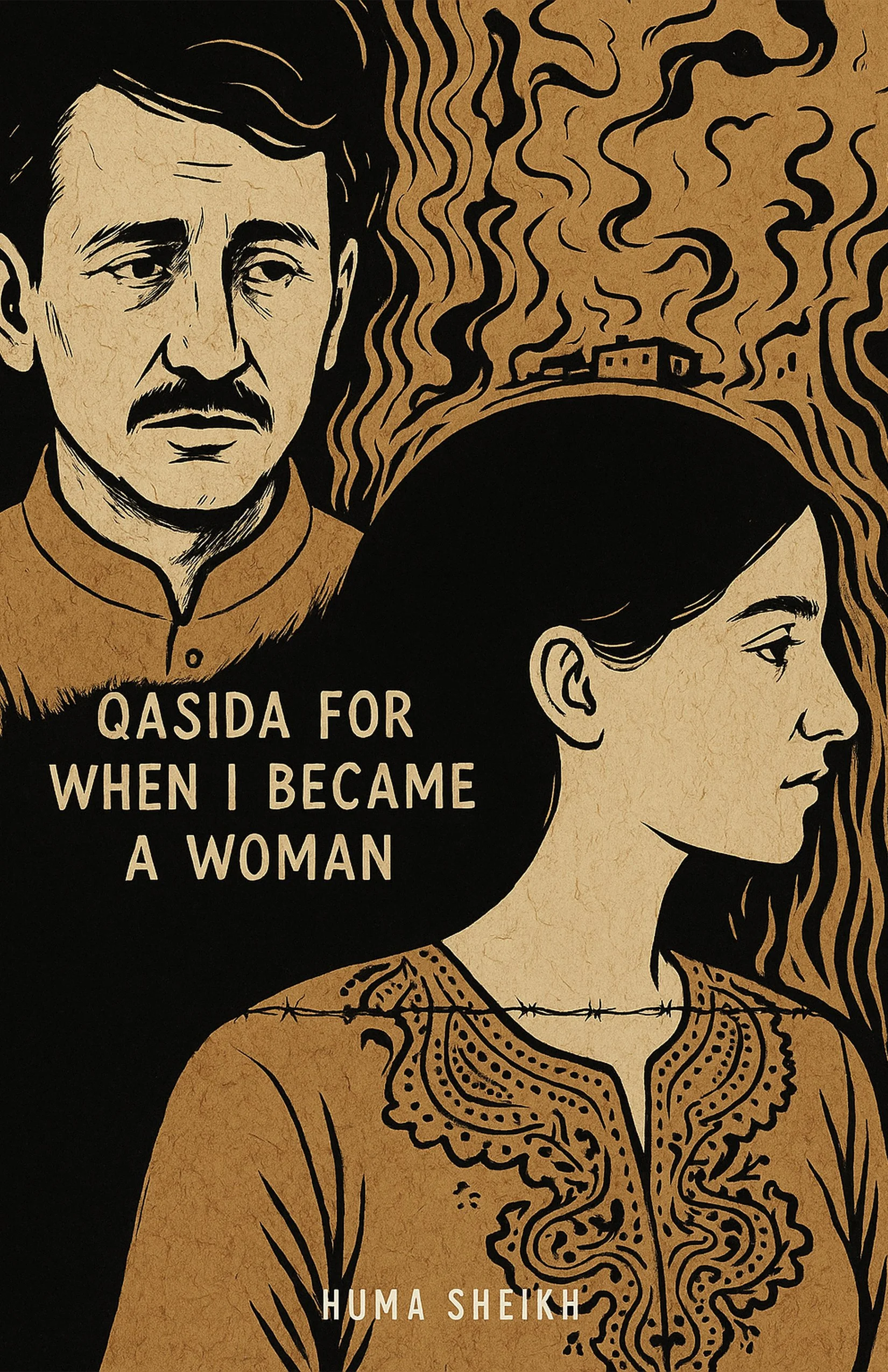‘Qasida for When I Became a Woman’ is a new Poetry Book by Huma Sheikh
Qasida for When I Became a Woman reshapes the classical Arabic ode into a contemporary elegy of grief, resilience, and renewal. Set against the backdrop of war-torn Kashmir, these poems grapple with the unsolved murder of the poet’s father, the silences of disappearance, and the cultural restrictions placed on a young woman coming of age under military occupation. Through a blending of inherited forms and her own lyrical voice, Huma Sheikh creates a testament where violence and tenderness, absence and presence, exile and belonging coexist. Intimate yet political, this collection transforms trauma into testimony and loss into art, affirming that even in the darkest corners, memory, survival, and hope endure.
“It is rare for a poet to write about war and the painful reverberations of political violence with such poise, much less with the purpose and passion displayed by Huma Sheikh. Employing the ancient Arabic form, the Qasida, Sheikh takes us to a volatile, war-torn Kashmir where her father, a well-known recording artist, was murdered, his body never identified, his death a mystery that haunts his daughter’s every perception as she navigates a broken world saturated with his absence. Her voice distinctive and soulful, her vision laser focused and unflinching, Sheikh transforms an unreported tragedy into an unforgettable testament in this powerful, impressive debut. ” –James Kimbrell, author of The Law of Truly Large Numbers, his most recent book
“Each of these exquisite odes has the power to tear and heal your heart on the same page, even in the same line or stanza. Huma Sheikh writes with ferocious honesty about the father who was taken from her under shockingly violent circumstances, the mother who reinvented her own life to nurture the bereft child who grew to become a strong-voiced poet of our times. When she addresses her native soil, she writes, “Kashmir, you taught me to say yes ma’am, no sir, thank you,” reminding us that an artist’s job is to traverse this beautiful, brutal world as best she can and make art of it, make poems as entrancing as these.” –David Kirby, author of The Winter Dance Party, his most recent book
“Huma Sheikh takes the long history of the Arabian Ode, which has been a palace constructed by men, and makes it her own, and in this book tells the heartbreaking story of her father’s death and its aftermath. It is a story of war and death but told with such tenderness that the world is reconstructed even in the midst of “bullet storms.” In these poems grenades and apples appear on the same line as do bunkers and cherries. Even in the darkest corners of her song there is a praise of the world in all its beauty and horror. How can a man just disappear? He does, but his daughter lives to make sure that no one forgets.” –Barbara Hamby, author of Holoholo, her most recent book
About the Author
Huma Sheikh is a poet and the author of Qasida for When I Became a Woman (Finishing Line Press, 2026). Her work explores themes of political conflict, gender, injustice, and resilience, drawing on her experiences as a woman of color and her background in creative nonfiction and poetry. Her writing has appeared in Kenyon Review, The Journal, Consequence Magazine, Cincinnati Review, and Prism International, among others. A finalist for multiple literary prizes, she holds a PhD in English (Creative Nonfiction) and teaches writing at George Mason University. She lives in San Francisco, CA. Readers can connect with Huma on LinkedIn, Instagram, and Substack.
To learn more, visit https://www.humasheikh.me/books.html.


